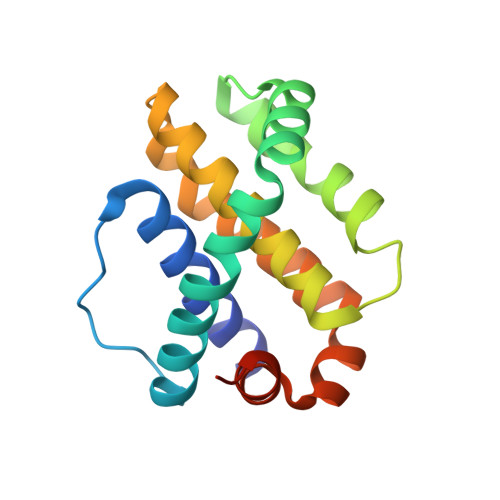Discovery and in Vivo Evaluation of Macrocyclic Mcl-1 Inhibitors Featuring an alpha-Hydroxy Phenylacetic Acid Pharmacophore or Bioisostere.
Rescourio, G., Gonzalez, A.Z., Jabri, S., Belmontes, B., Moody, G., Whittington, D., Huang, X., Caenepeel, S., Cardozo, M., Cheng, A.C., Chow, D., Dou, H., Jones, A., Kelly, R.C., Li, Y., Lizarzaburu, M., Lo, M.C., Mallari, R., Meleza, C., Rew, Y., Simonovich, S., Sun, D., Turcotte, S., Yan, X., Wong, S.G., Yanez, E., Zancanella, M., Houze, J., Medina, J.C., Hughes, P.E., Brown, S.P.(2019) J Med Chem 62: 10258-10271
- PubMed: 31736296
- DOI: https://doi.org/10.1021/acs.jmedchem.9b01310
- Primary Citation of Related Structures:
6UD2, 6UDI, 6UDT, 6UDU, 6UDV, 6UDX, 6UDY - PubMed Abstract:
Overexpression of the antiapoptotic protein Mcl-1 provides a survival advantage to some cancer cells, making inhibition of this protein an attractive therapeutic target for the treatment of certain types of tumors. Herein, we report our efforts toward the identification of a novel series of macrocyclic Mcl-1 inhibitors featuring an α-hydroxy phenylacetic acid pharmacophore or bioisostere. This work led to the discovery of 1 , a potent Mcl-1 inhibitor (IC 50 = 19 nM in an OPM-2 cell viability assay) with good pharmacokinetic properties and excellent in vivo efficacy in an OPM-2 multiple myeloma xenograft model.

















